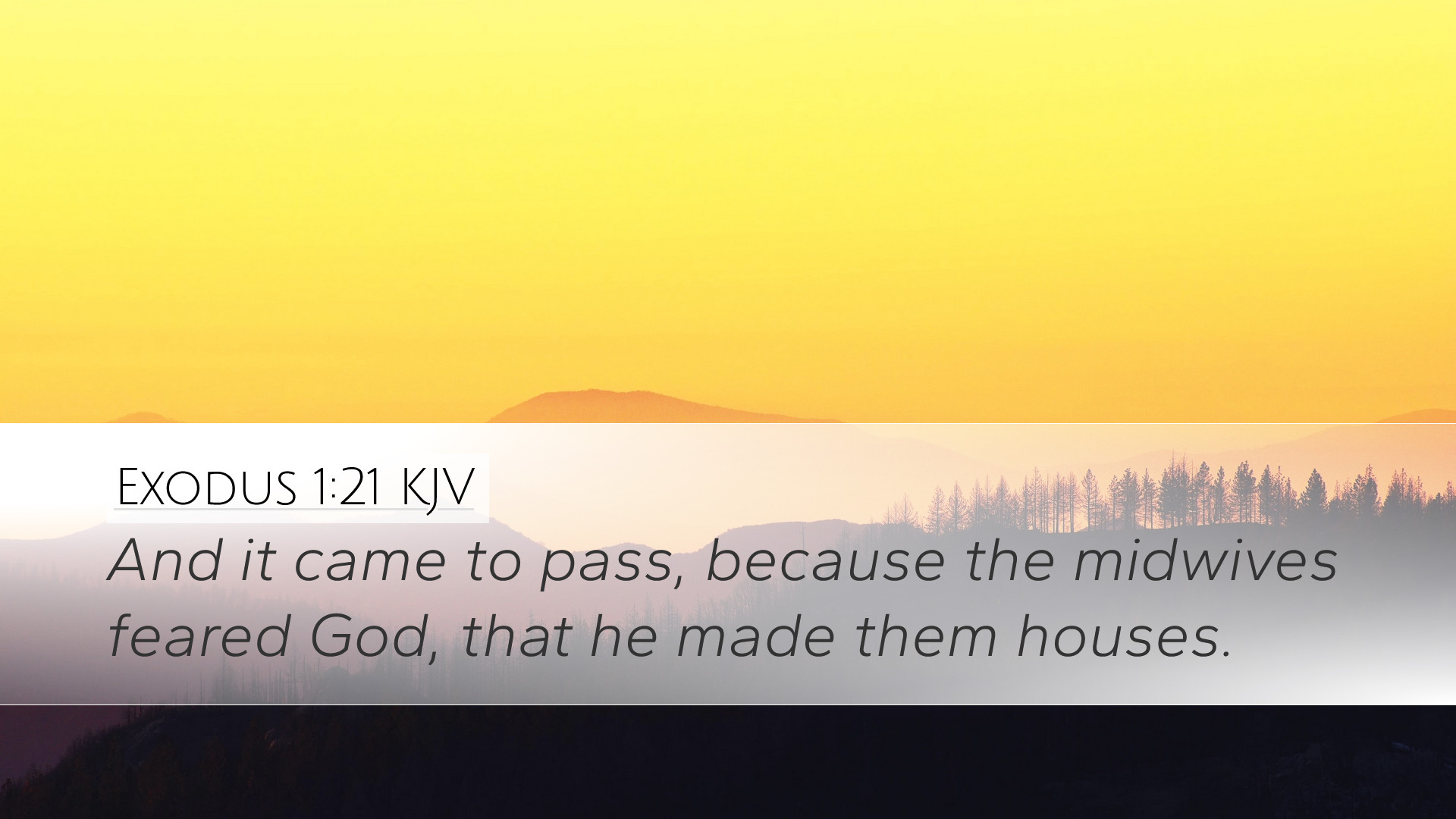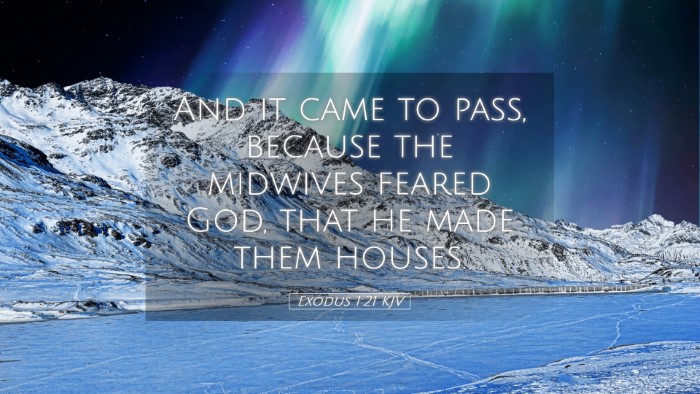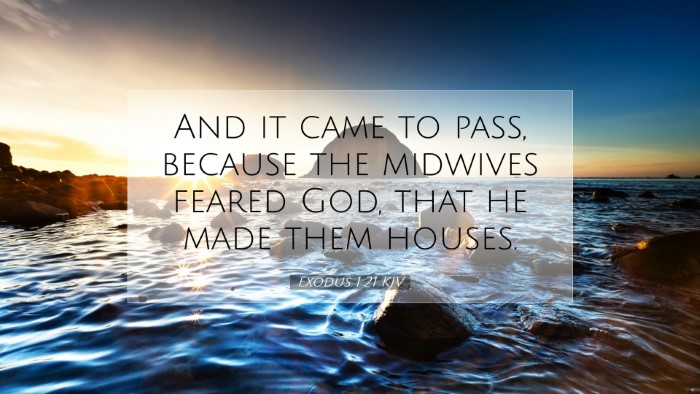Commentary on Exodus 1:21
Verse Context: Exodus 1:21 (KJV) states, "And it came to pass, because the midwives feared God, that he made them houses." This verse is pivotal in understanding the conflict between divine obedience and human authority within the narrative of God’s deliverance of His people.
Overview of the Exegesis
In this brief passage, we find a profound demonstration of faith amidst adversity. The midwives’ act of civil disobedience against Pharaoh’s decree showcases their commitment to God's commandments over the edicts of man. The resulting divine favor illustrates the principle that God rewards those who uphold righteousness.
Insights from Matthew Henry
Matthew Henry emphasizes the importance of the midwives’ fear of God, noting that their reverence was the root of their courage to oppose Pharaoh's wicked command. He states that, “The fear of God is the beginning of wisdom; it made them faithful and diligent.” According to Henry, their integrity not only preserved the lives of many but also set a precedent for God's intervention in dire circumstances.
Henry further expounds on the phrase “He made them houses,” interpreting this as God blessing them in their family lives, indicating a reward in the form of fruitful homes and possibly positions of honor for their moral stand. This reflects the biblical principle that divine favor often follows acts of faithfulness.
Contributions from Albert Barnes
Albert Barnes aligns with Henry on the theme of divine justice and favor. He elaborates that the midwives’ defiance had roots in their moral conviction and understanding of life’s sanctity. Barnes points out that Pharoah's edict showed a disregard for the covenantal blessings promised to Israel. Thus, the midwives’ actions can be seen as safeguarding the covenant and their identity as the chosen people of God. He indicates that this act was a significant act of faith and illustrates a powerful testament to God's providence.
In Barnes' view, the specific mention of God making them “houses” is a theological assertion that God would provide for those who embody righteousness. It implies both literal and metaphorical stability and legacy, contrasting the instability represented by Pharaoh’s chaos.
Reflections from Adam Clarke
Adam Clarke provides a slightly different angle, highlighting the social and cultural implications of the midwives defying Pharaoh. Clarke notes the midwives - Shiprah and Puah - represent the human agency that cooperates with divine purposes. He argues that their fear of God rather than fear of man set a precedent for future generations in Israel to follow. Clarke emphasizes the midwives' boldness as not only courageous but as a divine mandate that aligns with God’s justice.
Additionally, Clarke explores the resultant blessing of “houses” as indicative of both divine approval and material blessings; however, he implies that it also suggests a continuation of the families' legacy where such strong faithfulness continued to flourish. This bears implications for modern leaders facing moral dilemmas in various contexts.
Theological Themes
- Divine Providence: The theme of God’s providence shines through the narrative, as He sustains His people even in oppressive environments.
- Courage in Faith: The midwives characterize a profound courage that stems from a genuine fear of God, serving as a model for believers today.
- Reward for Righteousness: This verse encapsulates the biblical principle of reaping the rewards of righteousness, showcasing God's nature as a just rewarder.
- Social Justice: The midwives’ actions underscore a call to justice, illustrating that true obedience to God may require standing against corrupt authorities.
Application for Today
This passage speaks loudly to contemporary readers, especially leaders, and believers grappling with ethical dilemmas. It challenges them to consider their own fears, be they of authority or societal norms, juxtaposed against their fear of God. In a world often rife with injustice, the courage of the midwives serves as a testament to the importance of aligning one's actions with divine principles, reminding us that God honors and blesses those who stand firm in their convictions.
In conclusion, Exodus 1:21 offers a rich tapestry of theological insights and practical applications for pastors, students, theologians, and scholars. It stands as a landmark narrative reflecting God’s intervention in human affairs, embodying a call toward faithfulness, justice, and divine reward.


